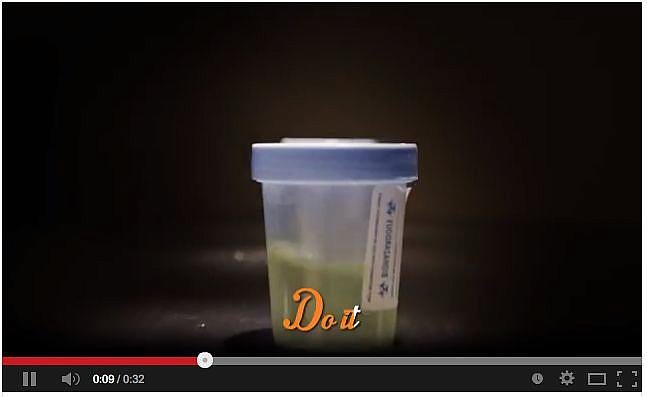Everybody Hurts: Patient advocates gird themselves for malpractice cap battle

Anyone who sees one of the “Pee in a Cup” videos circulating these days will probably laugh (I did) or check to see if the claims made are true (I did that, too).
The central point of the videos is that while police officers, firefighters, football players, janitors, pilots, and a list of people in other professions are required to undergo drug testing, physicians don’t have to.
Those other professions don’t have to pay more than $250,000 in damages for medical malpractice, either, but it’s likely that no one watching these videos will make that connection.
[video:http://youtu.be/ENR9jAABiys]
And I’m guessing that is part of the strategy behind the Troy & Alana Pack Patient Safety Act in California. The voter initiative now in the signature gathering stage has two main goals. The one getting the most attention right now, and the one that is less contentious, is the requirement for physicians to be tested for drug abuse. It also would require that physicians use California’s prescription drug database to monitor patients who are doctor-shopping to feed a drug habit.
But the act also would, as its website says, “promote justice for patients by adjusting the state's malpractice cap to account for 38 years of inflation.”
There are few things more sacred in California law than that malpractice cap. The Medical Injury Compensation Reform Act (MICRA) set a $250,000 limit on medical malpractice payouts in 1975, and that number has not changed since. MICRA has withstood numerous attempts to adjust it over the years and, just as the state’s cap on property tax increases survives despite repeated state budget crises, the cap survives despite repeated instances of rogue physicians wrecking patients lives and feeling very little financial pinch.
You can’t change MICRA without dueling with the California Medical Association, one of the toughest lobbying groups in a state full of tough lobbying groups. Here’s how Nanette Miranda at KABC in Los Angeles described the battle shaping up:
[video:http://youtu.be/LzCjNUhgv-I]
A decade ago, MICRA limited how much Pack could receive after suing the doctors he says carelessly over-prescribed medication to a woman who ended up driving impaired and ran over and killed his two children, Troy and Alana. The Pack ballot measure would require random drug and alcohol testing of doctors and mandate the medical profession use a state database that keeps track of prescriptions. But the main component is to raise the $250,000 medical malpractice ceiling to $1.1 million and allow it to adjust for inflation. Dr. Paul Phinney, president of the California Medical Association, is an opponent of changing MICRA. The pediatrician says all that would do is drive up costs. "It will increase meritless lawsuits, which will increase lawyer fees, increase health care costs, decrease access to care and won't do anything to improve the quality of medical care," said Phinney.
This has been the line from the medical association for decades, even in the face of evidence to the contrary. Patients in states without caps don’t suffer from higher health care costs than California’s and physicians in those states don’t have higher malpractice insurance premiums.
Although the drive behind the voter initiative focuses on drug testing right now, Pack and his allies aren’t shying away from the malpractice fight. Consumer Watchdog – one of Pack’s supporters -- prominently features an ad on its website provocatively saying, “Since 1975 the value of everything has gone up, except the value of a child’s life.”
Can that type of emotional appeal spend like cash?
It will have to.
[video:http://youtu.be/gD8uuM0U_aY]
Timm Herdt at the Ventura County Star wrote:
Nine medical provider associations and medical malpractice insurance companies already have combined to contribute $31.5 million to defeat the measure. Observers believe if the measure qualifies for the ballot, it could engender a $60 million to $80 million campaign next year. Molly Weedn, spokeswoman for the California Medical Association, called the measure "an attack on physicians" and said opponents will focus their arguments on lifting the cap on medical malpractice damages. "We're going to be talking to voters about what the measure is really about. All of the other provisions are really window dressing," she said. "This would take money directly out of the health care system and put it into the pockets of lawyers. It's the fact of the situation."
I’ll be watching and will keep you posted.
Related Stories:
California tries to cure prescription drug tracking system
Researchers find painkillers don’t solve long-term problems
Still Panning for Gold Standard Evidence on Painkiller Addiction
